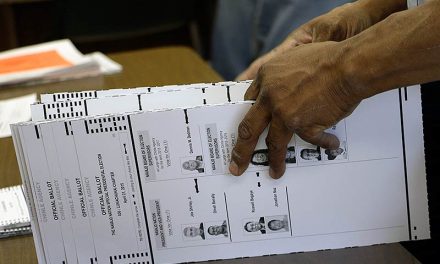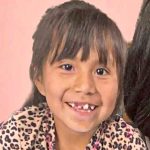
More than 2,000 Native children lost caregivers to COVID-19
WINDOW ROCK
As COVID-19 numbers continue to decline and life returns to some semblance of normal, it is important to remember the children who are grieving the loss of a parent or caregiver during the pandemic who still need the support and resources of their communities.
This is according to a recently release study called “Hidden Pain” by the COVID Collaborative and Social Policy Analytics, that reports than 167,082 children under 18, or about one in 450 of all children in the United States, lost at least one of their caretakers from January 2020 to November, 2021.
“For these children, COVID has done more than hurt their lives – it has ended their world,” the report states. “Especially early in development, a parent or family caregiver fills a child’s entire sky—providing most of his or her stability, confidence and care.”
According to the report, more than 2000 Native children lost primary caregivers to COVID-19 in Arizona, New Mexico and Utah alone.
The study describes the COVID-19 pandemic as the “single deadliest acute public health crisis in American history” and a “mass casualty” event that has left a trail of grief.
“America’s COVID-19 crisis has not ended, but we have begun to count the staggering size of our loss,” state the researchers. “These tragedies were experienced in the isolation of pandemic precautions and hospital wards.”
Children who lost a parent, grandparent or other caregiver face uncertainty, stress and turmoil, they say.
The report advises policymakers and other leaders to face the responsibility to minimize the clinical, social, and economic impacts these children are encountering.
“This group of children warrant special attention in the policy and practice responses to COVID-19 bereavement,” it states.
‘Bearing the heaviest burden’
The report found children from racial and ethnic minority groups were far more likely to lose a caregiver to COVID-19 than White, non-Hispanic children, meaning COVID’s hidden loss falls heaviest on minority children.
“Higher mortality rates and larger household sizes among communities of color, combined with legacies of disinvestment, have led to consistently disadvantaged communities experiencing COVID-19 related orphanhood at the highest rates,” the report states.
American Indian and Alaska Native and Hawaiian and Pacific Islander children had the highest rate of caregiver loss at nearly four times that of white children per 100,000 people.
The study reports the rates of caregiver loss for American Indian and Alaska Native children were more than 10 times those of white children in Mississippi, New Mexico, North Dakota, South Dakota and Utah.
In Arizona, 1,142 Native American children out of a total of 5,980 lost a caregiver.
In New Mexico, 774, or about half of the 1,609 total children who lost caregivers, were Native American.
In Utah, 120 Native American children out of 1,323 total lost caregivers.
In total, 2,036 Native American children lost caregivers in the three states that comprise the Navajo Nation.
“We are requiring these children and families to bear the heaviest burden of the pandemic, despite permitting them the fewest resources with which to carry on,” states the report.
Overall, approximately 20% of children with a caregiver death were in the youngest age group (birth through 4 years old), 50% were elementary or middle-school age (age 5 through 13), and 29% were high-school age (age 14 through 17).
“Many of these children already faced significant social and economic adversity, and these devastating losses can impact their development and success for the rest of their lives,” said researchers.
Additionally, the trauma, uncertainty and stress associated with the loss of a caregiver can lead to depression, anxiety, PTSD, addiction, lower academic achievement and higher dropout rates, financial turmoil, and reduced employment into adulthood.
“Caregiver death can contribute to negative psychological, economic, and social outcomes, especially for families from these under-resourced communities, and failure to mitigate these consequences is a missed opportunity,” the report states. “They have lost the most important people in their lives: their sources of care, comfort, love, and economic support.”
Researchers say critical support needed for the children who lost caregivers can be provided by extended family, peer support groups, community-based intervention, counseling, grief camps, mentoring programs, increased access to mental health programs, financial assistance, and government and school engagement.
“The grief and confusion of these young people is concealed by being scattered across the country,” the report states. “We must do everything necessary to rescue and comfort them.”
Click to access HIDDEN-PAIN-FINAL.pdf
As a public service, the Navajo Times is making all coverage of the coronavirus pandemic fully available on its website. Please support the Times by subscribing.
How to protect yourself and others.
Why masks work. Which masks are best.
Resources for coronavirus assistance








 Highway 264,
Highway 264, I-40, WB @ Winslow
I-40, WB @ Winslow